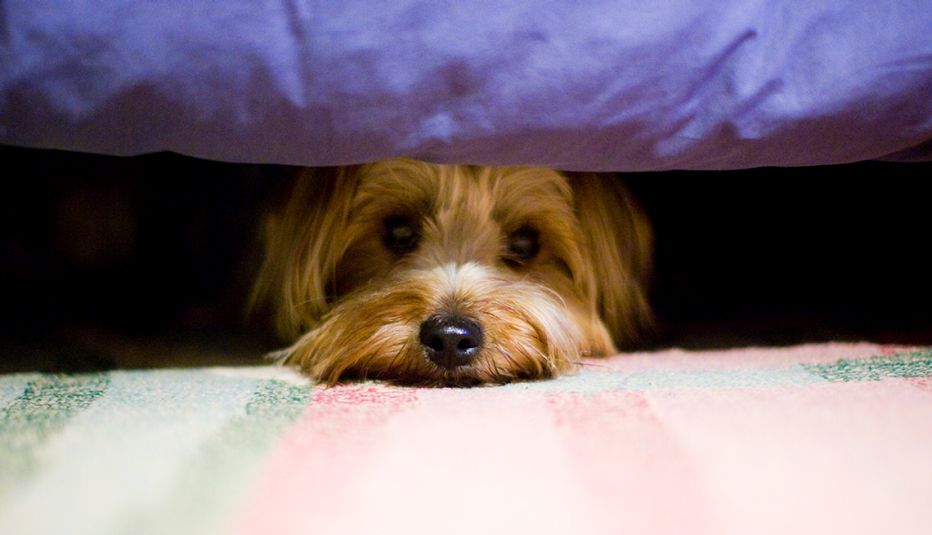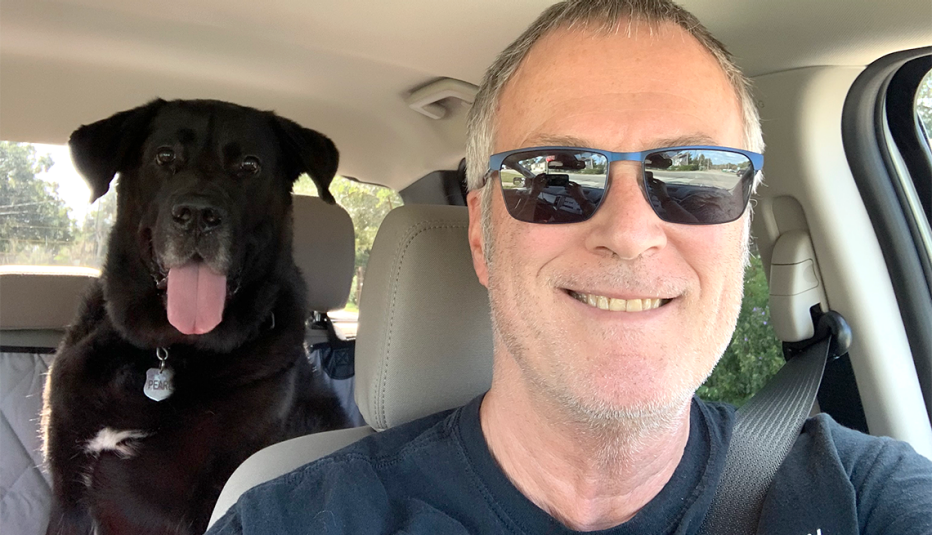AARP Hearing Center


Fireworks on the Fourth of July fill most Americans with feelings of pride, patriotism and joy. But fireworks often fill dog owners with anxiety instead of awe, and dread instead of delight.
Neil Zevnik, 71, is one of those dog owners. A retired private chef who lives in Eustis, Florida, he has his heart break every year for Pearl, his 9-year-old, 120-pound rescue dog. Despite her massive size — she’s half Labrador retriever, half Saint Bernard — she cowers at every crack, pop, bang and boom.
“We experience major problems here because Floridians are very fond of their fireworks,” explains Zevnik, who says Fourth of July fireworks in Central Florida typically begin several days before the holiday and often last for several days after. “Pearl gets terrified. Her eyes get very wide. She won’t go more than 6 inches away from me. And if it gets really bad, she tries to climb up onto me — which isn’t feasible at her size. … She’s just miserable.”
Zevnik and Pearl aren’t alone. Several studies have found that many dogs have a negative reaction to fireworks. A 2021 study by British dog welfare and training organization the Kennel Club found that as many as 80 percent of dogs are afraid of fireworks. The same study found that the number of dogs that go missing increases by 100 percent during fireworks season.


“It’s very common,” says veterinarian Alex Schechter, founder of Burrwood Veterinary in Royal Oak, Michigan. “My own dog, actually, is one that is scared of fireworks and thunder, so I deal with this constantly.”
If your dog is scared of fireworks, you probably already know it. But stress might be more apparent in some dogs than others, according to celebrity dog trainer and Rover.com expert Nicole Ellis. Things to look for, she says, include anxious panting, lip-licking, pacing, whining and trying to escape through doors or windows.
“Shaking is one of the biggest signs,” Ellis notes.
The reason for pets’ stress is simple: sound. Although dogs are best known for their superior sense of smell, they also have super sensitive hearing. So when fireworks start popping, so do pups’ ears.
Dogs “can hear sounds that are farther away — up to four times farther away than we can — but they also can sense higher-frequency sounds, which means they’re receiving a lot more auditory stimulation with things like fireworks,” says holistic veterinarian Lindsey Wendt, owner of Crystal Lotus Veterinary Care, a Los Angeles-based veterinary practice specializing in integrative medicine. “Plus, we all have to remember that dogs have no context for why these sounds are occurring.”





































































More From AARP
A Guide to Choosing a Pup to Match Your Personality
Whether you’re a homebody or traveling in retirement, there’s a good canine companion for you
9 Ways to Entertain Your Dog Indoors
From training to toys, here’s how to help confined canines conquer boredom6 Ways to Prevent Dog Walking Injuries
The right equipment, training and footwear can prevent falls and fractures